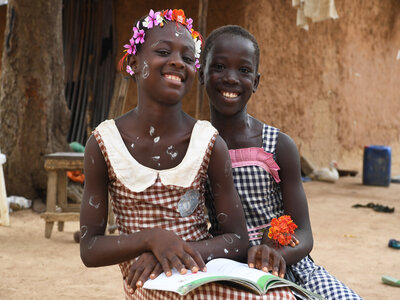Welcome to the SBC Gender Learning Pathway
Once you have completed the Pathway, you will receive a certificate.
Course Requirements (2023)
- UN Women: I Know Gender: An Introduction to Gender Equality for UN staff
- Programmatic Approaches to Positive Gender Norms and Socialization
- ADAP or WASH or Humanitarian or Humanitarian Emergencies or Education
- SBC Expert Series: Social media and the end of gender and/or New data on the rise of women and/or How empowering women and girls can help stop global warming
- Gender-Responsive Monitoring & Evaluation and/or Gender responsive Results-Based Management and/or Gender Statistics Toolkit
- UN Woman: Building Gender IQ course by HeForShe and PwC! or Gender representation in the media (MOOC / FutureLearn) or Understanding Gender Inequality (MOOC / University of Exester) or Gender and Development (MOOC/Deakin University) or ILO: OHCHR human rights of LGBTI people toolkit
Learning Objectives
After completing this Learning Pathway, you should:
- Explain gender concepts, the international framework and gender within the UN program cycle
- Discuss how gender equality and women’s empowerment help integrate a gender perspective into UNICEF programming
- Define key concepts of gender socialization and how discriminatory norms are perpetuated across the life cycle and understand UNICEF’s approach to positive gender norms and socialization
- Demonstrate how and why gender transformative approaches are key to building lasting, positive development outcomes based in equality
- Communicate why it is important to apply gender-transformative approaches to programming for adolescent girls
- Develop and apply gender-transformative approaches and strategies to programme design and implementation
- Incorporate a gender lens at each stage of the WASH programme cycle (including in humanitarian emergencies) using a results-based management approach
- Explain how gender equality is mainstreamed across various CCCs sector commitments and in UNICEF's approach to humanitarian action
- Explain the main gender concepts that underpin UNICEF’s approach in humanitarian action; the importance of integrating gender considerations into UNICEF’s emergency preparedness and response; and how to integrate gender in key stages of humanitarian programming
- Describe UNICEF’s approach to prevent, respond and mitigate risks of GBV in public health emergencies (PHE); identify GBV risks related to PHE responses and how to mitigate those GBV risks in PHE responses; and know how to implement UNICEF Key Considerations: Mitigating, Preventing and Responding to GBV in PHEs in your work
- Describe the programme tools that can be used to design gender-transformative education programmes and how to apply these
- Explain the link between gender and M&E and how it is important in programming; develop gender-responsive monitoring systems; how to formulate gender-sensitive indicators and results; how to monitor and report on the Gender Action Plan (GAP); and how to source UNICEF data, M&E processes, and tools
- Apply gender-responsive results-based management in country, regional and organisational level programming
- Describe the importance of gender statistics and its global context and provide examples of how gender statistics can inform national policy and legislation
Audience
This Learning Pathway is primarily for UNICEF staff and external partners who are interested in learning about Gender in UNICEF.- UNICEF staff (country offices, Regional Offices and HQ)
- UNICEF partners
- UNICEF and National Committee consultants, interns, volunteers, goodwill ambassadors and National Committee board members
- UNICEF government, civil society and corporate partners as appropriate
Length
How long this Pathway will take will depend on how you choose to complete the elective portion of the Pathway. We suggest you plan to spend several hours each week for 3 - 4 weeks to complete this Learning Pathway.
Methodology
This Learning Pathway includes six required courses, an elective, and access to two of the SBC Expert Series videos.
Structure
This Learning Pathway includes courses from Agora and videos.
Contact details
Content issues: For questions about the content of this course, please contact Helena Ballester Bon, hballesterbon@unicef.org.
